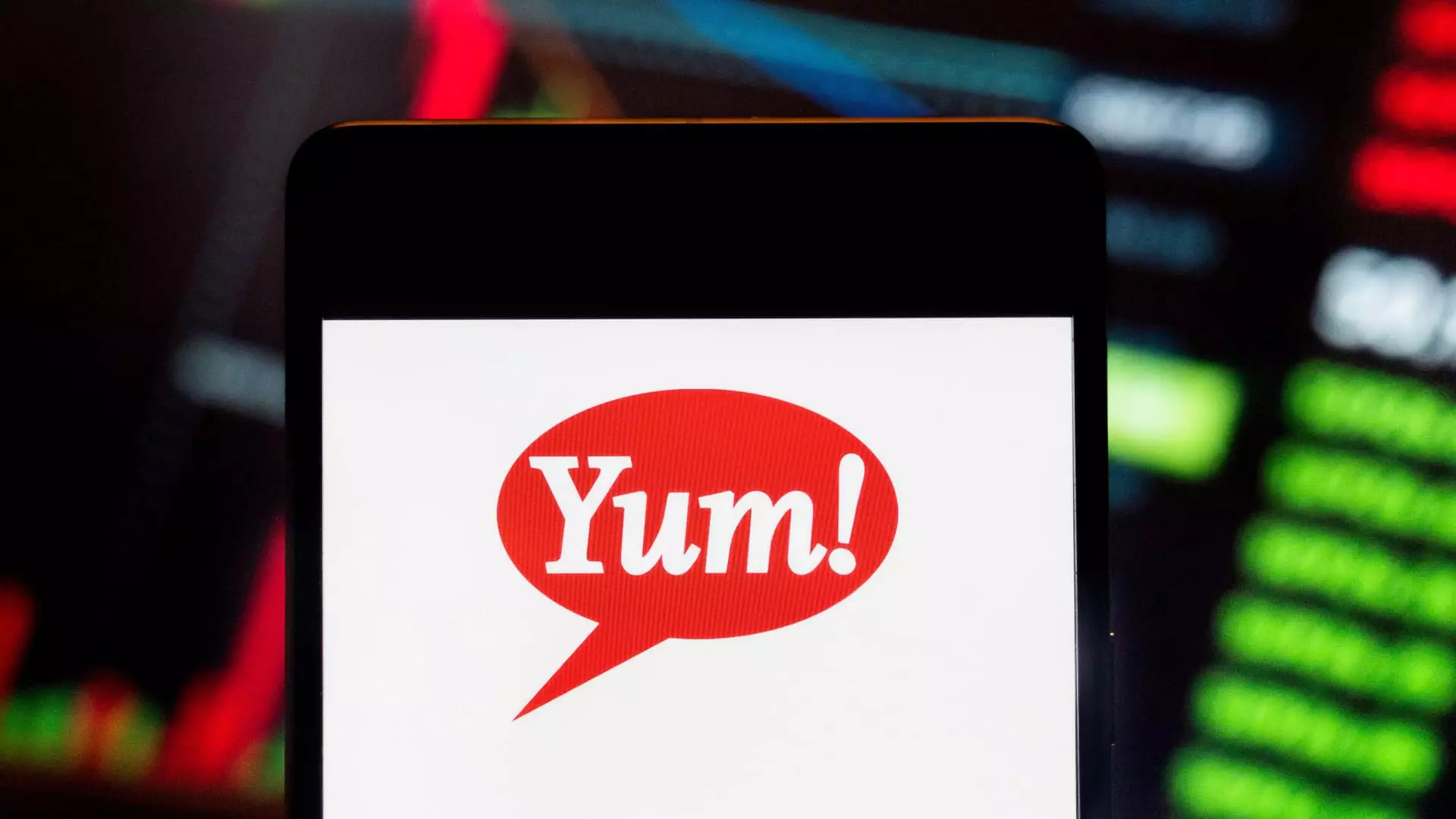Yum Brands, the parent company of popular fast-food chains such as KFC, Pizza Hut, and Taco Bell, has recently published its quarterly earnings, revealing results that fell short of market expectations. This news isn’t just a fleeting moment in the financial calendar; it is a significant reflection of broader trends within the fast-food industry as it grapples with an intricate web of economic challenges and fluctuating consumer sentiment.
According to Yum’s recent earnings report, the company posted an adjusted earnings per share (EPS) of $1.37, which was below Wall Street’s expectation of $1.41. In terms of revenue, Yum reported figures of $1.83 billion, missing analyst forecasts that anticipated $1.90 billion. This underperformance became particularly evident when comparing the company’s third-quarter net income, which declined to $382 million from $416 million year-over-year. Although net sales rose by 7%, a dichotomy of success and struggle emerges when examining the company’s same-store sales.
Yum’s overall same-store sales dropped by 2% in the quarter, largely influenced by disappointing results from KFC and Pizza Hut. Both chains reported a significant decline in same-store sales, with KFC suffering a 4% dip and Pizza Hut witnessing an even steeper 6% contraction in international markets. CEO David Gibbs pointed out that turbulent political climates and adverse consumer sentiment have played critical roles in these downturns. The effects of ongoing regional conflicts have notably hindered KFC’s performance in key markets, including Indonesia, Malaysia, and the Middle East, where the franchise has reported sales declines of up to 45%.
These statistics are particularly disheartening given that the U.S. market represents KFC’s second-largest operation after China. Even within the U.S., KFC has lost some of its competitive edge and market share to rival chains such as Popeyes, which has ascended to become the second-largest chicken chain in the nation. The news from this quarter indicates a that KFC may be moving to a more value-centered strategy to reclaim ground during the critical fourth quarter.
While KFC tries to pivot towards value offerings, Pizza Hut is wrestling with broader concerns in its international operations. The fast-food pizza chain’s same-store sales fell by 6% globally, while its U.S. performance remained relatively steady with just a 1% drop. This inconsistency reflects the challenges faced by Pizza Hut as it attempts to reel in customers formerly assigned to its offerings while utilizing promotional tactics like discounts in various markets, including China and India. Leaders of the company have recognized the need for strategic changes in order to stimulate growth in faltering segments.
Amidst the struggles seen in KFC and Pizza Hut, Taco Bell has emerged as a shining example of success within Yum Brands’ portfolio. The fast-food chain posted a robust same-store sales growth of 4%, fueled by innovative menu selections like the Cheesy Street Chalupas and the $7 value meal. Amidst an industry-wide slowdown, Taco Bell has maintained a strong value perception among consumers, demonstrating resilience that differentiates it from its sister brands. Gibbs emphasizes Taco Bell’s capacity to adapt, which positions it as a leading influence for growth in the upcoming quarters.
Yum Brands’ current environment prompts a critical reassessment of its strategies moving forward. As competition increases and external factors such as political unrest and shifting consumer behavior loom large, Yum must refine its approach across all its brands. By harnessing the lessons learned from Taco Bell’s recent successes and addressing the weaknesses in KFC and Pizza Hut, Yum can work towards regaining its footing. Although this quarter’s results signify challenges, they also present an opportunity for pivotal changes that could rejuvenate growth and profitability in the coming years.

Leave a Reply